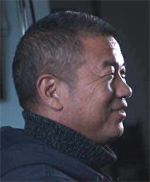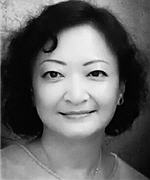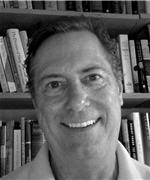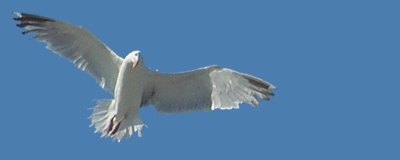
雷平阳
Lei Pingyang
 
雷平阳,云南省昭通人氏,1966年生。出版诗歌及散文集多部。 著有《风中的群山》《天上攸乐》《普洱茶记》《云南黄昏的秩序》《我的云南血统》《雷平阳诗选》《云南记》《雷平阳散文选集》等作品集十余部。曾获昆明市“茶花奖”金奖,云南省政府奖一等奖、云南文化精品工程奖、《诗刊》华文青年诗人奖、人民文学诗歌奖、十月诗歌奖、华语文学大奖诗歌奖、鲁迅文学奖等奖。现居昆明,任云南师范大学特聘教授。
Lei Pingyang, born in Zhaotong, Yunnan province in 1966, contemporary Chinese poet, the author of several anthologies of poetry and collections of essays, and the winner of various national poetry awards.
|

|

译者
Translator
谢炯
Joan Xie
  谢炯, 诗名炯, 出生在上海。八十年代就读于上海交通大学管理系,1988年留学美国,取得企业管理硕士和法律博士学位。出版诗集《半世纪的旅途》(2015),散文集《蓦然回首》(2016),中文诗集《幸福是,突然找回这样一些东西》(2018),英文翻译诗集《十三片叶子》(2018)。2017年荣获首届德清莫干山国际诗歌节银奖。中文诗作发表在国内《诗刊》《扬子江诗刊》等文学诗刊。英文诗作和翻译作品发表在美国《诗天空》《唇》,《文学交流》等文学诗刊。 谢炯, 诗名炯, 出生在上海。八十年代就读于上海交通大学管理系,1988年留学美国,取得企业管理硕士和法律博士学位。出版诗集《半世纪的旅途》(2015),散文集《蓦然回首》(2016),中文诗集《幸福是,突然找回这样一些东西》(2018),英文翻译诗集《十三片叶子》(2018)。2017年荣获首届德清莫干山国际诗歌节银奖。中文诗作发表在国内《诗刊》《扬子江诗刊》等文学诗刊。英文诗作和翻译作品发表在美国《诗天空》《唇》,《文学交流》等文学诗刊。
Joan Xie was born in Shanghai where she attended Shanghai Jiaotong University. She came to the United States in 1988 to study business and law. Xie's Chinese poetry and essay collections include Half-Century Journey (2015), Looking Back (2016), Nothing Made Me Happier than Finding These Objects (2018) and she is the editor of Thirteen Leaves (2018). In 2017, she received a Silver award at First Moganshan International Poetry Festival in China. Her poems in Chinese appeared in well-known poetry magazines in China, such as Poetry Journal and The Yangtze River Poetry Journal. Her translations appeared in Exchanges Literature Journal, LIPS and Poetry Sky.
Sam Perkins
  Sam Perkins是纽约作家和诗人。 作为常年的杂志编辑和作家,他的非小说性作品已经得到广泛的出版,特别令人注目的是长期在“纽约时报”发表。 他多年来是“读者文摘国际版”的作家兼编辑,也是杂志“巴黎欧洲编辑部”的高级编辑。 他曾在法国,德国和美国就学,毕业于哈佛大学英语系。 Sam Perkins是纽约作家和诗人。 作为常年的杂志编辑和作家,他的非小说性作品已经得到广泛的出版,特别令人注目的是长期在“纽约时报”发表。 他多年来是“读者文摘国际版”的作家兼编辑,也是杂志“巴黎欧洲编辑部”的高级编辑。 他曾在法国,德国和美国就学,毕业于哈佛大学英语系。
Sam Perkins is a writer and poet based in New York City. A longtime magazine editor and writer, Perkins' nonfiction features have been widely published, notably in the New York Times. He was for many years a writer and editor for Reader's Digest International Editions and a Senior Editor in the magazine's European Editorial Office in Paris. Perkins attended school in France, Germany and the United Sates. He graduated with honors in English from Harvard University.
|
窃窃私语或鼓腹而鸣,整座森林
没有留下一丝空余。唯一听出的是青蛙
它们身体大一点,离人近一点
叫声,相对也更有统治力
整整一个晚上,坐在树上旅馆的床上
我总是觉得,阴差阳错,自己闯入了
昆虫世界愤怒的集中营,四周
无限辽阔的四周,全部高举着密集的
努力张大的嘴,眼睛圆睁,胸怀起伏
叫,是大叫,恶狠狠地叫,叫声里
翻飞着带出的心肝和肺。我多次
打开房门,走到外面,想知道
除了蛙,都是些什么在叫,为什么
要这么叫。黑黝黝的森林、夜幕
都由叫声组成,而我休想
在一根树枝上,找到一个叫声的发源
地。尽管这根树枝,它的每张叶子,上面
都掉满了舌头和牙齿。我不认为
那是静谧,也非天籁,排除本能
和无意识,排除个体的恐惧和集体
的焦虑,我乐于接受这样的观点:森林
太大,太黑,每只虫子,只有叫
才能明确自己的身份,也才能
传达自己所在位置。天亮了
虫声式微,离开旅馆的时候,我听到了
一声接一声的猿啼。这些伟大的
体操运动员,在林间,腾挪,飞纵
空翻,然后,叫,也是大叫
一样的不管不顾,一样的撕心裂肺
|
|
Whispers or beating of drums, the whole forest
is filled. Only croaking can be heard.
Frogs are bigger and nearer, their croaking, more commanding.
All night, sitting on a bed in a treehouse hotel
I keep thinking that I've stepped into a concentration camp
of furious species: an unbound, vast space, jammed with
gaping mouths, googling eyes, undulating chests.
Their screams and shouts rolling, hearts and lungs out.
I open the door, go out, wondering who else is making noise
and why they scream this way.
The darkened forest and the night fill with their calls,
but I can't find the source of the sound,
though each branch, each leaf teems with tongues and teeth.
Not an element of tranquility, no the sound of nature
nor instincts or unconsciousness, nor individual fear
or collective anxiousness, I rather believe that
the forest is too deep, too dark — only by its call,
can each creature show its identity, declare its location.
At daybreak, all is quiet. Leaving my hotel,
I hear a roll of long screams of apes, one after another.
These great gymnasts of the forest maneuver,
fly vertically, somersault, then scream loudly
with the same indifference, and the same heartrending force.
|







